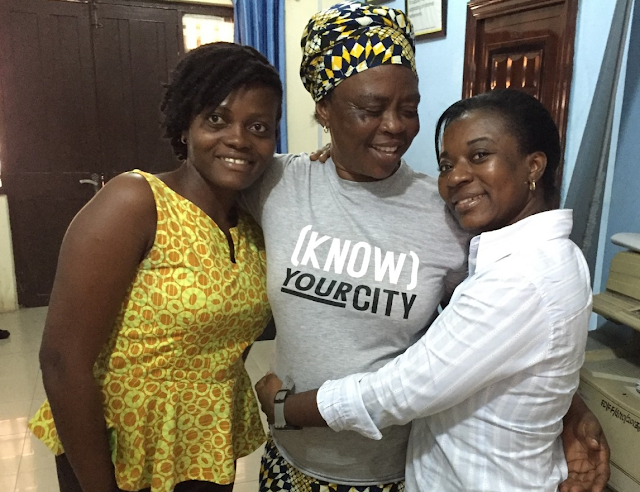By Esther Awotwe, 1st year MDP student
“Make cities and human settlements inclusive, safe,
resilient and sustainable”- Sustainable Development Goal 11
Who speaks for the urban poor? Who advocates their
needs? How do policy makers incorporate their ideas and experiences in policy
formulation to create an enabling environment? What are the practicalities of
the SDGs in the everyday life of the slum dweller? These and many questions
were the ones that went through my mind when I engaged with the urban poor.
My field placement was at People’s Dialogue and Human
Settlement Ghana. Through the partnership of People’s Dialogue, Cities Alliance
and Ghana Federation of the Urban Poor, creative and innovative platforms have
been built to strengthen the capacity of the slum dweller and echo their
concerns to policy makers. I realized that their worries were not really to
drive the fancy cars, or live in exotic sky rise buildings or mansions but to
make a decent living, have access to affordable housing and all the social
amenities that is required to make life worthwhile in the city. They want to be
recognized as belonging to the populace of urban dwellers who also have the
right to enjoy the social infrastructure in the cities.
My engagement with the Ghana Federation of the Urban
Poor gave me further insight into the gender specificity of building an
inclusive city as women form various networks of savings groups all over the
capital. The Savings groups form a core sustainable component of the Federation
of the Urban Poor. It creates a unified
front and enable members enjoy services that hitherto could not be available to
them by conventional banks. These women
have risen to the challenge of empowering themselves through their groups by
learning from each other, and taking up roles and positions that traditionally
belong to men. It is quite humbling when they express the challenges of living
in the slum and yet how they are still encouraged to belong to savings groups
in order to access loans to improve their livelihood and standard of living.
 |
| Esther (R) with Madam Janet Adu, President of the Ghana Federation of the Urban Poor (centre) and Barbara, Secretary at People's Dialogue (L) |
The spirit and letter behind Goal 11 formed a great
piece of my learning experience. The intricacies of urban planning and slum
management involves rigorous, complex and sometimes not too pleasant processes
that requires commitment on the part of policy makers and citizens to achieve
sustainable cities. The urban poor is often burdened with the need for
affordable housing units, improved social infrastructure, sustainable
livelihoods and land tenure security. Equitable distribution of resources can
be best effected when there is adequate data of formal and informal
settlements. Effective collaboration is needed between all stakeholders of
urban planning including creating that space where the voice of the urban poor
is heard. Failure by policy makers to effectively engage will continually
create that deficit in resource allocation and rob them of their rights to a
decent living.

No comments:
Post a Comment